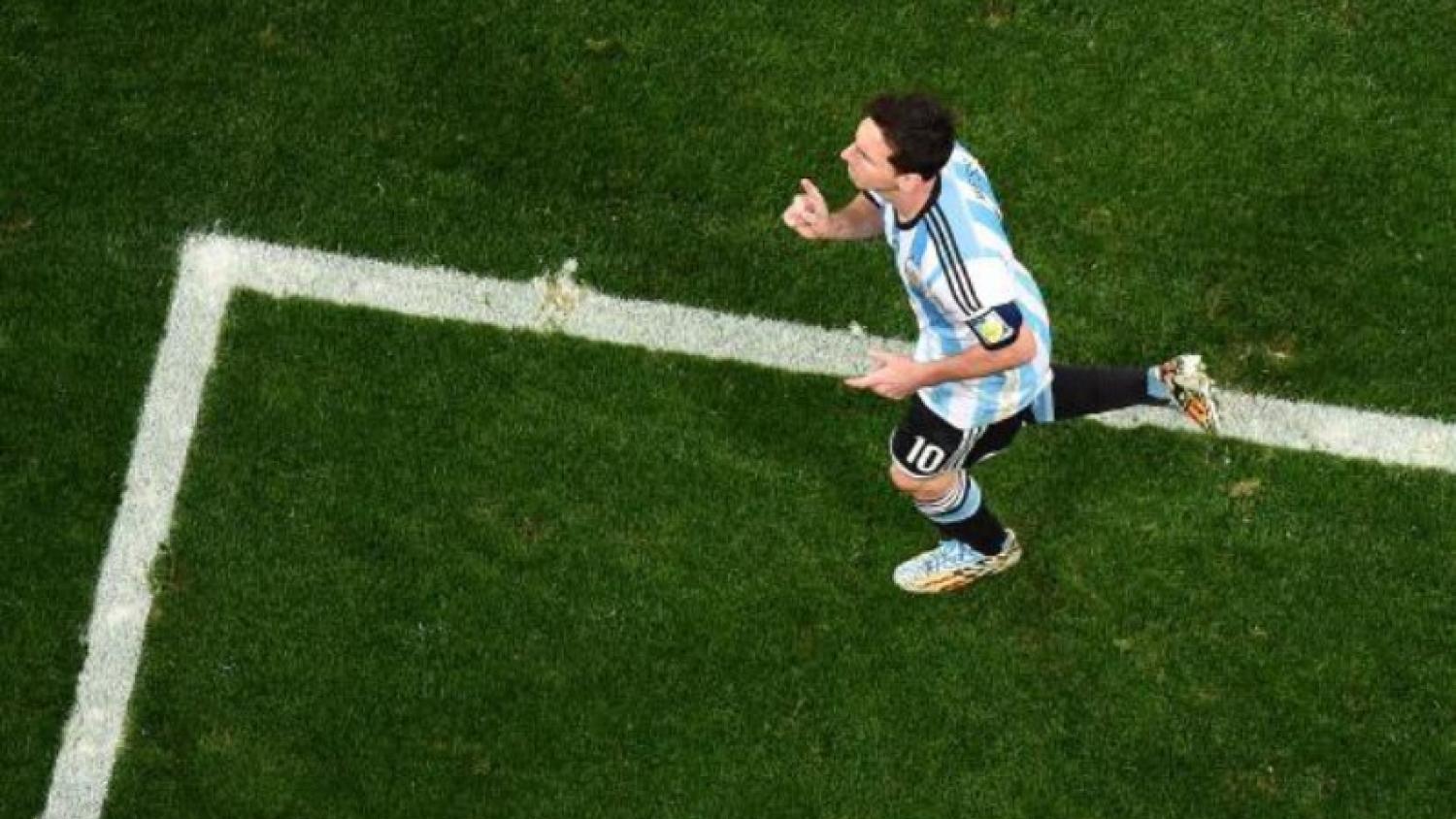Argentina clinched its first trip to the World Cup Final since 1990, after defeating the Netherlands 4-2 on penalties in the semifinal match in Sao Paolo. The contest, a rematch of the 1978 World Cup Final, was in stark contrast to yesterday’s German smorgasbord of goals, as neither side could score in the 120+ minutes of the match. The victory sent the Argentinian fans into a frenzy, as in the days leading up to the match and especially following Brazil’s shocking defeat to Germany, the Argentines were overtly confident in their chances of securing a place in the final.
Before a very pro-Argentinian crowd, there were a few players on each side that returned to their squad following injuries. For the Netherlands, Nigel De Jong and Robin Van Persie were unexpectedly able to start, while Argentina’s Sergio Agüero was also available for the first time since the group stage. Following a fairly uneventful start to the match, Argentina’s Javier Mascherano had a nasty clash of heads with Dutch midfielder Georginio Wijnaldum while each was vying for a header. Mascherano got up initially before looking completely dazed, wobbling, then falling over. After being examined for approximately 2 1/2 minutes by the training staff, Mascherano walked off the pitch, then reentered the match at the first opportunity. While Mascherano went on to have an incredible match (including a perhaps match-saving tackle on Arjen Robben in the 91st minute), the sheer speed in which he was allowed to return the pitch raised additional questions about the protocol that FIFA follows regarding concussions, which is to say...they don’t seem to have one. There is no word on whether the Argentine physio used the “I am holding up fingers: True or False,” test that was used on Billy Bob in Varsity Blues.

Mascherano's early scare (left) gave way to a strong performance the rest of the match, including a goal- and perhaps match-saving tackle against Holland's Robben (right) (Photo: ESPN Broadcast)
In the second half, the skies opened up, but the play didn’t. By the 50th minute, Argentina had the only shot on goal. Even more incredibly, it took until past the 75th minute for the Netherlands to have a single touch in the attacking penalty area. The Argentines nearly broke through at that point, with Gonzalo Higuaín making a good run and getting his foot to a great cross, but his shot was slightly off and ended up in the side netting. It was Higuaín’s last memorable play in the match, as Agüero came on for him a few minutes later.
One of the stories of the match was the relatively minimal impact that the stars had on the match throughout the run of open play. Battling a stomach bug that he contracted a few days before this match, Robin Van Persie was clearly not his typical self. Van Persie gallantly tried to fight through it, but his touch was off, his pace was lacking, and he was subbed off in the 95th minute. Stars Arjen Robben and Lionel Messi had a few shining moments, but for the most part, they were unable to impose their will on the match.
As the match went into extra time, there were a few genuine scoring opportunities for each squad, but none were successfully converted. Perhaps the best opportunity was for Argentinian forward Rodrigo Palacio, who made it behind the Dutch defense, but was unable to corral his header past Dutch keeper Jasper Cillessen.
Van Persie’s substitution meant that Netherlands manager Louis Van Gaal was out of substitutions and therefore unable to recreate his strategy of bringing on Tim Krul to handle the penalties, as he did against Costa Rica. Unlike Krul, who saved two penalty shots, Cillessen was unable to save a single shot and the Argentinians scored on all four of their opportunities. The Dutch, in contrast, bizarrely sent up Ron Vlaar to take the first spot-kick which was easily saved by Sergio Romero. Studies have shown that going first in a penalty shootout can be a huge advantage if you score on the first attempt, so Van Gaal’s decision to send up Vlaar, who is not used to taking penalties, will surely be criticized by the Dutch faithful in the days to come.

Argentina players pile up in celebration after their 4-2 penalty shootout victory (Photo: ESPN Broadcast)
With the win, the Argentinians will now face the Germans in the final on Sunday afternoon in a rematch of the 1986 and 1990 finals, making this a rubber match between the countries. The two have a more recent history as well, as the Germans have eliminated the Argentinians from the last two World Cups at the quarterfinal stage. There will be a lot of legacies on the line in this match, as players from both sides will be looking for the crowning jewel of their already sparkling careers.
For Lionel Messi, considered by many people to be not only the best player in the world at the moment, but perhaps the greatest player of all time, it is said that he “needs” to lead his country to victory in a World Cup in order to solidify his status among the all-time greats. There is no question that the main talking point in the comparison to his fellow countryman Diego Maradona, who memorably led the 1986 squad to the title, is the World Cup title that Messi currently lacks. Leading the Argentines to the title on Sunday could very well catapult Messi into the pole position for all-time greatness, as well as securing a permanent place in the hearts of the few Argentines that do not have him already there.
The Germans have much at stake as well. As we previously detailed on The18, the core of Germany’s squad has won everything there is to win on the club level and have come agonizingly close to a triumph on the international stage. An incredible four straight trips to the semifinals of the World Cup, including two trips to the final, is not good enough for Deutschland. Despite their historic 7-1 victory over host nation Brazil in the semifinals - much like the stakes that the United States faced in the 1980 Olympics following their upset of the Soviet Union in the semifinals - the Germans know that it will have been all for nothing if they cannot finish the job in the final.
The World Cup Final airs Sunday, July 13, 2014 at 3:00 p.m. EST on ABC.
The third -place match between the Netherlands and Brazil airs July 12, 2014 at 4:00 p.m. EST on ESPN.
Follow Mike Smith on Twitter @thefootiegent

 Home
Home

